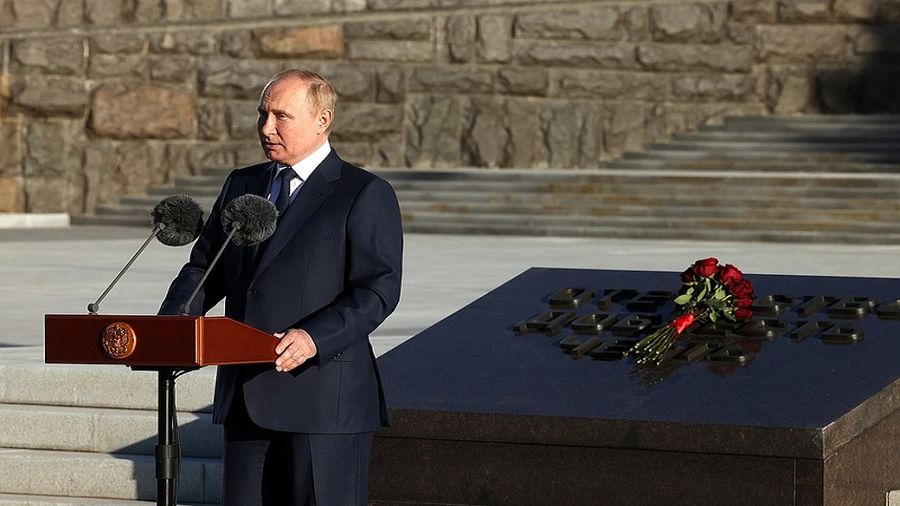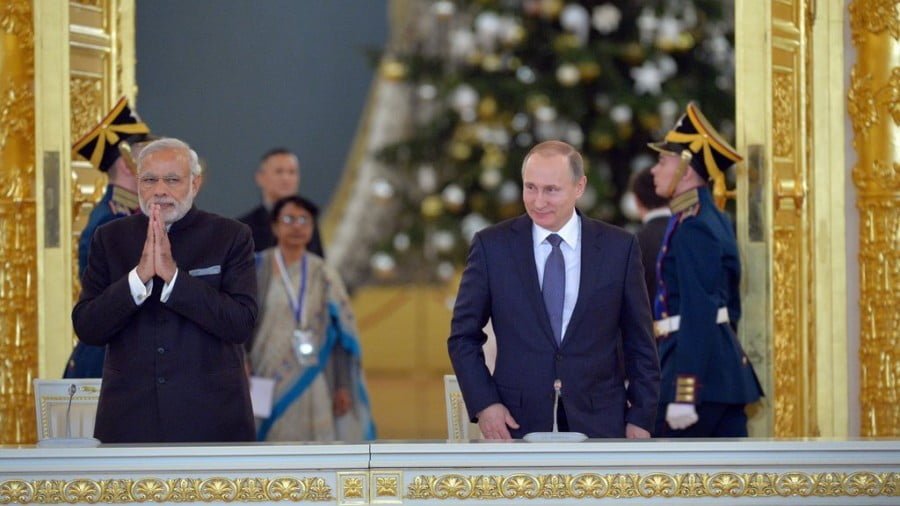Putin Cautioned Russian Strategic Forecasters Against Indulging In Wishful Thinking
Strategic forecasters must always aspire to reflect reality as accurately as they can, understanding that this is impossible to perfectly do in practice but nevertheless continually moving in this direction and regularly improving their work to this end.
President Putin spoke to current staff and veterans of his Foreign Intelligence Service (SVR) on the centenary of their illegal intelligence’s founding by the Soviet Union. This branch of his special services refers to those spies who don’t operate under any diplomatic cover and therefore can’t simply be expelled upon being caught. It’s unquestionably the most dangerous but also among the most important intelligence services that anyone can do. The Russian leader used this occasion to share some general advice with the SVR and offer some commentary about other related matters, including the importance of strategic forecasters not indulging in wishful thinking like their Western counterparts do.
According to President Putin:
“The Foreign Intelligence Service and other security services prioritise strategic forecasting of international processes. And this analysis must be realistic, objective and based on verified information and a wide range of reliable sources. One should not indulge in wishful thinking. By the way, the so-called collective West has found itself trapped, has driven itself into this exact trap and in its own actions proceeds from the idea that there is no alternative to its model of liberal globalism…the West is trying to ignore an inconvenient reality, the forming of a multi-polar world order…The dogmatic attitudes of the past and unwillingness to face up to reality is inevitably increasing the risk of premature, impulsive actions on the part of the West in the future.”
The above insight will now be analyzed.
On the professional level, strategic forecasters must always aspire to reflect reality as accurately as they can, understanding that this is impossible to perfectly do in practice but nevertheless continually moving in this direction and regularly improving their work to this end. Wishful thinking, which can sometimes be the result of believing one’s own propaganda like President Putin explained during last month’s Saint Petersburg International Economic Forum (SPIEF) was at the core of the West’s decision to unprecedentedly sanction Russia, can result in the formulation of counterproductive and even dangerous policies that contradict objective national interests.
This wisdom is also relevant on the public level as well.
The Alt-Media Community (AMC) regularly indulges in wishful thinking with respect to their fantasies about Russian grand strategy, which many sincerely believe to be real in their own mind. For instance, a significant segment of this community is convinced that President Putin is secretly an anti-Zionist allied with the Iranian-led Resistance in order to destroy Israel despite his country actually being de facto allies with the self-professed Jewish State nowadays. Another wishful thinking narrative imagines that Russia is secretly plotting to somehow or another destabilize Turkiye, yet again in spite of those two having impressively managed their differences over the years.
These narratives and others actually undermine Russian interests.
To explain, the public gets misled by these wishful thinking fantasies spun by what they regard as trusted and reliable sources. When reality sets in and the delusion is shattered, those same sources rarely modify their inaccurate models but instead double down on them by spewing literal conspiracy theories to account for “politically inconvenient” facts such as Israel and Turkey both refusing US-led Western pressure upon them to sanction Russia. With time, the wishful thinking fantasy becomes utterly detached from reality and quite literally begins resembling a cult, complete with regular inquisitions carried out by gatekeepers against “blasphemers” who “dare” to challenge their dogma.
On the professional and public levels, wishful thinking is therefore an ideological trap.
Regarding the first, it can literally endanger the country in the most direct way possible by being responsible for formulating counterproductive policies that contradict objective national interests, while the second concerns the inadvertent loss of hearts and minds as sober-minded folks become disillusioned with the literal conspiracy theories spewed by folks who claim to support Russia. The problem is inherently ideological at its core since wishful thinkers have a tendency to filter out “politically inconvenient” facts due to their zealous dedication to whatever their cause may be. This is an avoidable trap, but one that’s difficult to break free from once one falls into it.
It can, however, be defeated.
What those indoctrinated with wishful thinking need to do is realize that they best serve their cause by having their work reflect reality as accurately as they can so that policymakers and the public respectively can draw their own conclusions. One’s own state officials mustn’t ever be deliberately guided in a direction that’s divorced from reality but sometimes there are strategic reasons for doing this to the public, though that’s not the responsibility of strategic forecasters or members of the AMC but of professional “perception managers”. In fact, those members of the AMC who “go rogue” (even if they’ve convinced itself it’s “for the right cause”) can actually inadvertently complicate such operations.
There are thus several lessons to be learned from President Putin’s insight.
First, the precedent of the West’s own wishful thinking influencing the formulation of counterproductive policies towards Russia is a warning for all other countries’ strategic forecasters. Second, professionals must aspire to reflect reality as accurately as possible and never let their ideological preferences influence their information products. Third, the AMC must do the same unless they openly inform their audience that they’re functioning as agenda-pushing activists so that nobody mistakes them as analysts. Fourth, those professionals and members of the AMC that indulge in wishful thinking work against their own cause. And finally, wishful thinking can be cured by objectively understanding one’s role in the system.







65 Comments